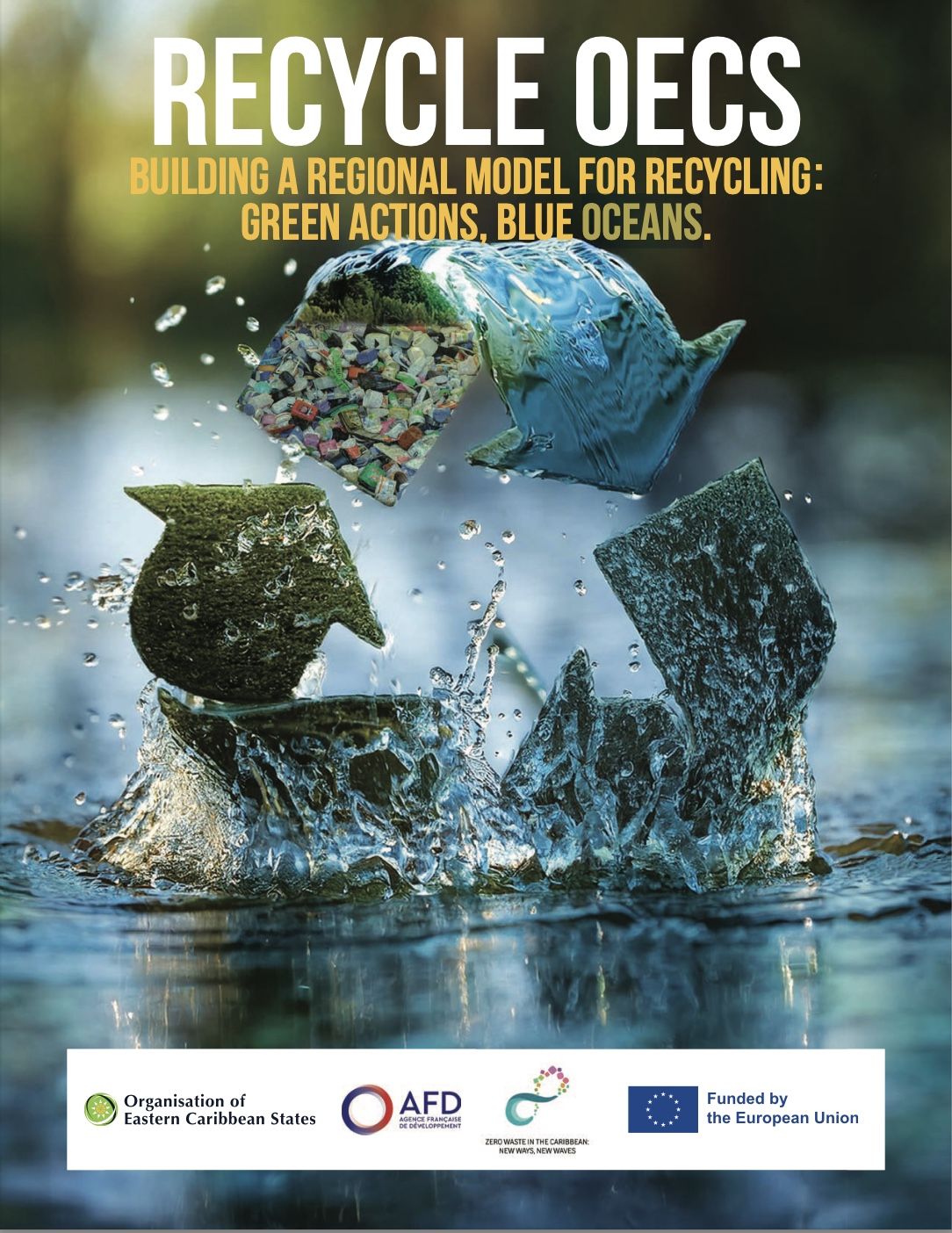OECS Case Study Demonstrates Transformative Regional Recycling Solutions
OECS Press Release
Castries, Saint Lucia – February 4, 2025 – The Organisation of Eastern Caribbean States (OECS)Commission has released a groundbreaking case study documenting innovative waste management through regional cooperation and public-private partnerships. Developed through the Recycle OECS Project, in partnership with Agence Française de Développement (AFD) and funded by the European Union, the case study provides a strategic framework for tackling plastic pollution and advancing sustainable recycling initiatives across the Eastern Caribbean.
The case study underscores the growing environmental and economic threat posed by plastic pollution, which endangers marine ecosystems, coastal habitats, and the tourism-driven economies of the region. It focuses on tested solutions, partnership models, and actionable recommendations for transitioning from a linear to a circular economy, ensuring that waste is managed efficiently and sustainably.
The transition from a linear to a circular economy is no longer optional- it’s essential for safeguarding both the natural resources and the tourism economy that sustains these communities. This shift requires adequately resourced solid waste management agencies and, crucially, public understanding and support of their vital role.
For the OECS member states, tackling plastic pollution demands more than individual action - it requires a unified regional response. Success depends on collaboration, not just between member states but across the wider Caribbean region. Only by working together can these nations achieve the economies of scale needed to establish effective recycling programs and protect their precious natural environment.
This case study, documents how OECS countries are transforming their approach to waste management through innovative solutions and strategic partnerships. It examines both the challenges these nations face and the practical steps they are taking to protect their environmental heritage. By sharing these experiences, successes, and lessons learned, this study aims to support continued progress toward sustainable waste management across the Caribbean region.
For access to the full case study and further information, visit the OECS Recycle webpage
About the Recycle OECS Project
Recycle OECS is a project that aims to reduce plastic pollution in the OECS region by recycling in the Eastern Caribbean. Recycle OECS goes above just recycling but encompasses researching and designing a sustainable waste separation, collection, and recycling model, with demonstrations in two member states. The project also seeks to increase awareness of the environmental and health risks of plastic pollution and pollution in general among all stakeholders. The Recycle OECS project falls under a broader EU zero waste initiative, which works to strengthen the EU-Caribbean partnership for cooperation in the field of circular economy and solid waste management. The Recycle OECS project is a two-year initiative funded by the European Union and implemented by the OECS Commission in partnership with the Agence Française de Développement (AFD)
Jacques Hinkson-Compton
OECS Communications Unit
